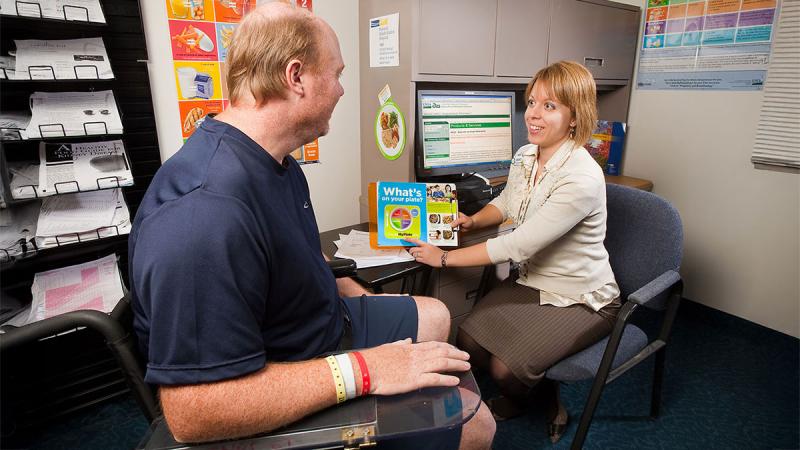Written collaboratively by Megan Jacobson and Shaylee Hoff.
When scrolling through social media, have you come across individuals calling themselves nutritionists or registered dietitians? While these terms are often used interchangeably, they have distinct meanings and qualifications.
Education and Credentials: They Key Difference

The most significant difference between a nutritionist and a registered dietitian (RD) lies in their education and training. Surprisingly, the title nutritionist is not regulated in many states, meaning anyone with an interest in nutrition can call themselves a nutritionist, with no formal education, certification, or national exam required.
In contrast, becoming an RD requires extensive education and training. To become an RD, individuals must:
- Obtain a master’s degree from an accredited university.
- Complete specific coursework and supervised practice that meets competency requirements.
- Pass a national credentialing exam.
- Apply for state licensure, where required.
These requirements ensure that RDs have extensive training and knowledge to provide evidence-based nutrition care.
Registered Dietitian Licensing in South Dakota
To practice as an RD in South Dakota, individuals must obtain licensure through the South Dakota Board of Medical and Osteopathic Examiners. This process includes submitting proof of education, passing the national credentialing exam administered by the Commission on Dietetic Registration, and meeting South Dakota’s specific requirements. Licensing ensures that dietitians adhere to professional and ethical standards while providing medical nutrition therapy and other nutrition services. RD licensure ensures consumers can reach and identify qualified professionals who have the necessary knowledge, skills, and expertise required to deliver safe nutrition therapy. This guarantees that the public can trust an RD’s skills in human nutrition in an environment that is becoming oversaturated in “nutrition experts.”
SDSU Nutrition and Dietetics Program

South Dakota State University (SDSU) offers a comprehensive Nutrition and Dietetics Program designed to prepare students for careers as registered dietitians.
The program includes coursework in clinical nutrition, food science, and community nutrition, as well as supervised practice through an accredited dietetic internship. Graduates from SDSU’s program are well-prepared to sit for the national credentialing exam and pursue licensure in South Dakota or other states.
For those interested in a career as a registered dietitian, SDSU provides an excellent pathway with hands-on experience and expert faculty guidance.
Scope of Practice: What Each Can Do
Registered dietitians are trained to provide medical nutrition therapy (MNT), which includes assessing, diagnosing, and treating nutrition-related health conditions, such as diabetes, heart disease, and food allergies. They are also qualified to offer personalized nutrition counseling based on scientific research.
A nutritionist, on the other hand, may have a general understanding of nutrition and healthy eating, but lacks the credentials to provide medical nutrition therapy to diagnose or treat nutrition-related conditions or provide nutrition counseling. While some nutritionists pursue certifications or additional training, their scope of practice is more limited.
Choosing the Right Professional for Your Needs

Although many nutritionists are knowledgeable about general nutrition, it is important to recognize the difference between a nutritionist and a registered dietitian, especially when seeking professional nutrition advice.
If you need help managing medical conditions, improving your diet based on scientific evidence, or receiving personalized nutrition counseling, a registered dietitian is the most-qualified professional to guide you.
Understanding these key differences ensures that you receive credible, expert-backed nutrition guidance tailored to your individual health needs.
Registered Dietitian*
- Holds a master’s degree or higher in nutrition and dietetics.
- Completes specific coursework and supervised practice supported by the Accreditation Council for Education in Nutrition and Dietetics.
- Passes a national credentialing exam.
- Obtains a state’s license.
Nutritionist
- May have some formal training or sometimes no formal training at all.
- No education requirements needed.
- No national credentialing exam.
- No state license.
*Some dietitians use the term registered dietitian nutritionist, or RDN. The RD and RDN credentials are interchangeable and are both accredited by the Commission on Dietetic Registration.


